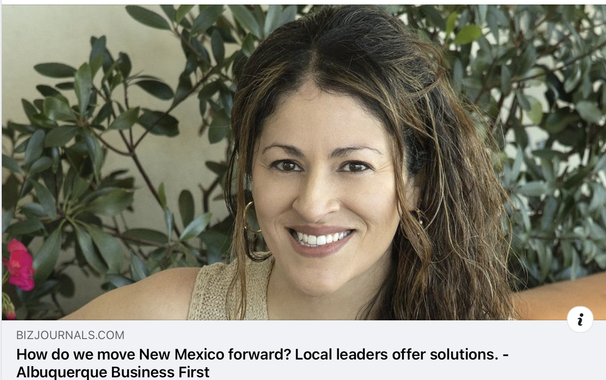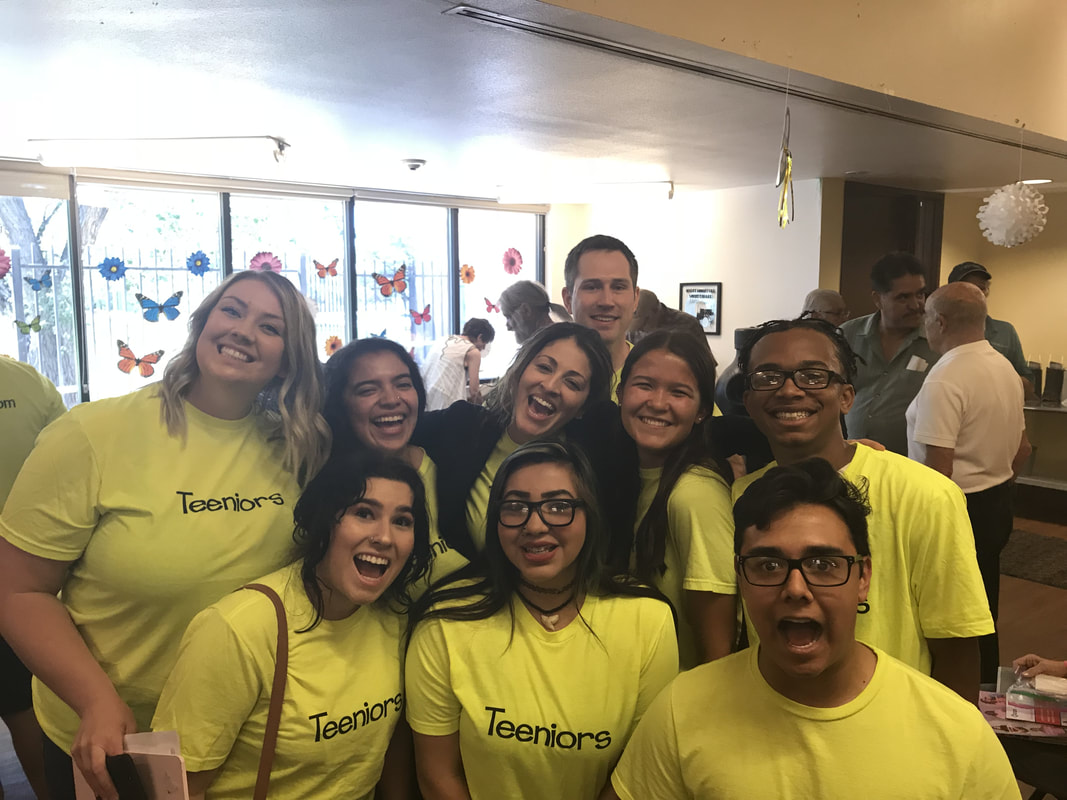$25/hour.
All Teeniors' high school grads are now paid this. It's the minimum that adult workers need to meet their basic needs. I'm so grateful to have reached this goal. And I assure you, if Teeniors can afford this, corporate employers can too.
Almost every social ill we have stems from poverty. I'm ready for the next evolution - past capitalism - past the scarcity mindset that breeds endless, exploitative growth and competition; where businesses are forced to compete with each other relentlessly, at the expense of the people—the workers—who actually make and do almost everything that turns a profit for the owners.
A higher wage may not be what you need - maybe you need more time off, work-from-home options, healthcare? If you are not getting your needs met and your employers aren't inclined to budge, how can you change your situation? Right now these Teeniors' coaches are contractors who live at home and work just a few hours a week. I want them to know that no matter what their job is in the future, they have the power to get their needs be met.
Albuquerque Business First asked local leaders like myself what can be done to move NM forward. This was after their 2023 survey showed that crime and homelessness were among the top concerns. Changing our ridiculously low minimum wage ($12/hr in NM) was just one of my suggestions. Below is what I wrote. (You can read it on their website here.)
All three of the barriers to moving NM forward — crime, education, homelessness — result directly from poverty. People of means are housed and don’t tend to commit the crimes at issue here; they can send their kids to good schools and supplement that through tutoring and extracurriculars, among other needs. The solution is simple: We commit to meeting the needs of our most impoverished New Mexicans.
As business leaders, how many of us connect with New Mexicans who live and work in different class circles than our own? If our team is already satisfied with their work and compensation, how do we recruit from different neighborhoods to get a variety of applicants? How do we reach out to people of different ages/abilities/incomes to uplift a multifaceted workforce and clientele? How are we connecting with customers who can’t afford our product or service but need it? Are we familiar with B-Corps? Even if we don't seek that certification, do we know the practices they evaluate?
How do we feel about minimum wage? I find it ridiculously low at $12/hour. It contributes to these barriers while perpetuating the cycle of poverty. I pay Teeniors coaches $15-20/hour, and if I can afford that on our revenue, anyone can. By creating a nonprofit arm as a fiscally sponsored initiative, we get to help people who can't afford to pay. Recruiting from diverse neighborhoods through open job fairs creates conversations with people who bring new perspectives to our workplace. In 2016, the Partners for Employment Symposium did a full-day event on hiring people with disabilities that answered the tough questions many of us were thinking.
If as employers we can't pay a full-time, entry-level person a wage that will allow them to meet their material needs, we need to rethink our business model. Every issue we stress about, at its origin, stems from scarcity or a scarcity complex (which exists among both the poor and affluent).
There’s no denying the concerns holding New Mexico back are systemic, but as leaders we can address the needs of individuals, then expand our circles. Getting comfortable with uncomfortable questions and avoiding the desire to shame each other will make a huge impact in moving us forward.
All Teeniors' high school grads are now paid this. It's the minimum that adult workers need to meet their basic needs. I'm so grateful to have reached this goal. And I assure you, if Teeniors can afford this, corporate employers can too.
Almost every social ill we have stems from poverty. I'm ready for the next evolution - past capitalism - past the scarcity mindset that breeds endless, exploitative growth and competition; where businesses are forced to compete with each other relentlessly, at the expense of the people—the workers—who actually make and do almost everything that turns a profit for the owners.
A higher wage may not be what you need - maybe you need more time off, work-from-home options, healthcare? If you are not getting your needs met and your employers aren't inclined to budge, how can you change your situation? Right now these Teeniors' coaches are contractors who live at home and work just a few hours a week. I want them to know that no matter what their job is in the future, they have the power to get their needs be met.
Albuquerque Business First asked local leaders like myself what can be done to move NM forward. This was after their 2023 survey showed that crime and homelessness were among the top concerns. Changing our ridiculously low minimum wage ($12/hr in NM) was just one of my suggestions. Below is what I wrote. (You can read it on their website here.)
All three of the barriers to moving NM forward — crime, education, homelessness — result directly from poverty. People of means are housed and don’t tend to commit the crimes at issue here; they can send their kids to good schools and supplement that through tutoring and extracurriculars, among other needs. The solution is simple: We commit to meeting the needs of our most impoverished New Mexicans.
As business leaders, how many of us connect with New Mexicans who live and work in different class circles than our own? If our team is already satisfied with their work and compensation, how do we recruit from different neighborhoods to get a variety of applicants? How do we reach out to people of different ages/abilities/incomes to uplift a multifaceted workforce and clientele? How are we connecting with customers who can’t afford our product or service but need it? Are we familiar with B-Corps? Even if we don't seek that certification, do we know the practices they evaluate?
How do we feel about minimum wage? I find it ridiculously low at $12/hour. It contributes to these barriers while perpetuating the cycle of poverty. I pay Teeniors coaches $15-20/hour, and if I can afford that on our revenue, anyone can. By creating a nonprofit arm as a fiscally sponsored initiative, we get to help people who can't afford to pay. Recruiting from diverse neighborhoods through open job fairs creates conversations with people who bring new perspectives to our workplace. In 2016, the Partners for Employment Symposium did a full-day event on hiring people with disabilities that answered the tough questions many of us were thinking.
If as employers we can't pay a full-time, entry-level person a wage that will allow them to meet their material needs, we need to rethink our business model. Every issue we stress about, at its origin, stems from scarcity or a scarcity complex (which exists among both the poor and affluent).
There’s no denying the concerns holding New Mexico back are systemic, but as leaders we can address the needs of individuals, then expand our circles. Getting comfortable with uncomfortable questions and avoiding the desire to shame each other will make a huge impact in moving us forward.


 RSS Feed
RSS Feed